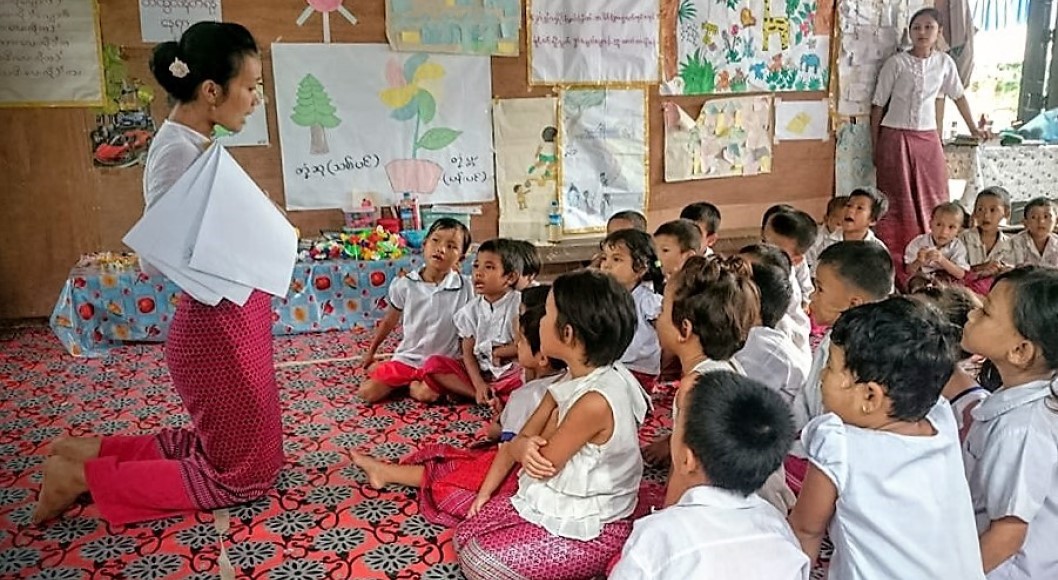The Thailand-Myanmar border is home to more than 400,000 migrants from Myanmar and 130,000 refugees living in nine camps. These populations have lived along the border for decades as a result of internal conflict within Myanmar, and generations of children have grown up in the camps and migrant communities, only knowing Thailand as home. Given their unofficial status in Thailand, accessing education has been difficult for Myanmar students and resources and teachers are scarce. As a result, students living on the border often cannot access education, let alone accredited education, and face challenges when returning to Myanmar and enrolling in government schools.
Building on previous projects including the USAID-funded Support to Health, Institution Building, Education and Leadership in Policy Dialogue (SHIELD) project, World Education led the education arm of the six-year USAID-funded Project for Local Empowerment (PLE) in partnership with IRC, the Mae Tao Clinic, and The Border Consortium to provide healthcare, education, food, and other humanitarian assistance to strengthen the resiliency of the most vulnerable persons living in Thailand and Southeast Myanmar. From 2011 through 2017, the project built the technical, management, and leadership capacities of 53 local partners who continue to deliver health, education, protection, food security, and livelihoods support to conflict-affect people living in the refugee camps and four states and two regions in Southeast Myanmar.
World Education’s programs increased access to and improved the quality of education for Myanmar migrants, refugees, and ethnic minorities, training more than 37,000 teachers in Myanmar and 2,400 teachers in Thailand on teaching methodology, subject matter, and mother tongue based multi-lingual education. Under PLE, World Education reached an average of 150,000 students per year in Southeast Myanmar and 50,000 students in Thailand, while supporting 690 displaced students to access the Thai non-formal education system and 374 students in Myanmar to access the Myanmar non-formal primary education system.
The project also supported 1,351 students to receive transfer certificates or sit for the Myanmar government exams, a pathway to certified and recognized education that will enable students to transfer into the appropriate grade level in Thai or Myanmar schools or to seek employment. World Education also increased community engagement within schools, working with local partners to establish parent teacher associations and train more than 86,000 school committee and PTA members on child protection, small-scale income generation, and options for school recognition.
World Education’s work was carried out in collaboration with 11 community-based and government organizations working along the border and within Southeast Myanmar. World Education developed an organizational development tool to strengthen each partner’s institutional capacity in areas such as financial management, communications, data management, and advocacy. As a result, partners were able to participate in Myanmar education reform meetings, advocate for ethnic education and accreditation, diversify their donor base, and transition programming back to Myanmar. World Education also worked with partners to develop an Education Quality Framework to measure the overall performance of more than 50 migrant learning centers.
Despite the project coming to an end in 2017, World Education partners continue to utilize their skills developed under PLE to advocate for ethnic education, train teachers, transition back to Myanmar, and provide students with quality education.


